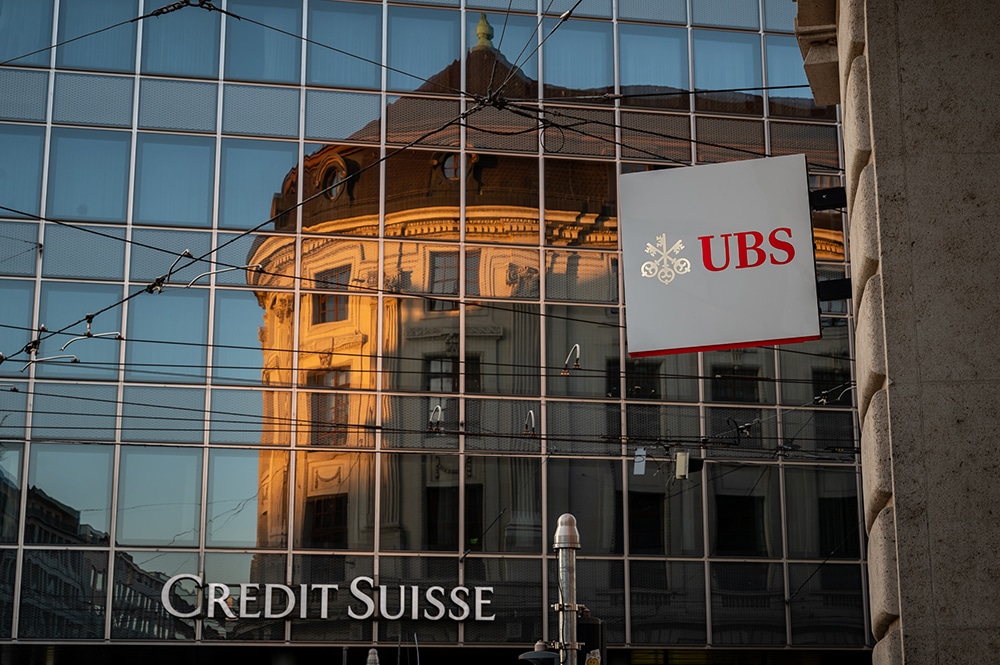ZURICH: UBS said Tuesday it would likely complete its takeover of stricken rival Credit Suisse before the end of June, as the bank posted an underwhelming first quarter net profit of $1.0 billion. All eyes were on what shape Switzerland’s biggest bank is in as it prepares to carry out its rescue merger with its closest domestic competitor. Analysts polled by the Swiss financial newswire AWP expected UBS’s first quarter net profit to tick in at around $1.7 billion, down from $2.1 billion a year ago.
Net income for the first quarter was reduced by an increase in litigation provisions of $665 million to settle an old dispute linked to the sub-prime crisis in the United States. The bank said it was in advanced discussions with the US Department of Justice and reported progress towards settling the case. UBS said it saw a net inflow of new money into its global wealth management division of $28 billion, of which $7 billion came in the last 10 days of March, following the takeover announcement.
And returning chief executive Sergio Ermotti said he would give clarity as soon as possible within the coming months on what the scene would look like for domestic banking within Switzerland.
He said any decisions would be “based on facts”, saying public discussion at this stage was “totally based on emotions and in many cases, totally uninformed”. “Whatever we do has to be sustainable and viable,” he stressed, in a conference call with analysts. There are concerns within Switzerland about thousands of prospective job cuts, plus the vast size of the new bank squashing consumer and business choice—and potentially being too big for the state to rescue if it got itself into trouble. UBS shares dropped in morning trade on the Swiss stock exchange Tuesday. Shares were down 3.9 percent at 17.48 Swiss francs each in mid-morning trading.
Q2 takeover target
On March 19, the Swiss government, central bank and financial regulator strongarmed UBS into a $3.25-billion shotgun marriage to ensure its smaller, but still “too-big-to-fail” rival, did not go bankrupt. “We are focused on completing the acquisition of Credit Suisse, most likely in the second quarter of 2023,” UBS said. “While acknowledging the magnitude of, and complexity associated with, the integration and restructuring of Credit Suisse, we believe that this combination presents a unique opportunity to bring significant, long-term value to all of our stakeholders.”
Ermotti said the transaction would help to “reinforce the leading position of the Swiss financial centre and will be of benefit to the entire economy.”
Analyst at Swiss investment managers Vontobel Andreas Venditti said UBS’s investment case had “changed from a capital-generative firm with high returns of capital to shareholders, to a complex restructuring story”. “At least UBS has secured a reasonable price and significant loss protections,” he added.
Credit Suisse slump
Credit Suisse on Monday published perhaps its final quarterly results ahead of the merger, revealing the desperate situation it was in when the takeover deal was pushed through. The bank saw 61.2 billion Swiss francs ($68.6 billion) withdrawn in the first quarter of 2023 alone—mostly made in panic around the takeover time—following 110.5 billion Swiss francs in withdrawals in the fourth quarter last year. While Credit Suisse said those outflows had “moderated”, it acknowledged they “have not yet reversed”.
Credit Suisse reported deceptively-bloated net profits for the first quarter, which swelled to 12.4 billion Swiss francs ($14 billion), up from a significant loss a year earlier. But that was largely attributed to holders of high-risk Credit Suisse debt being wiped out in the emergency takeover deal. It warned of “substantial” losses to come. —AFP











